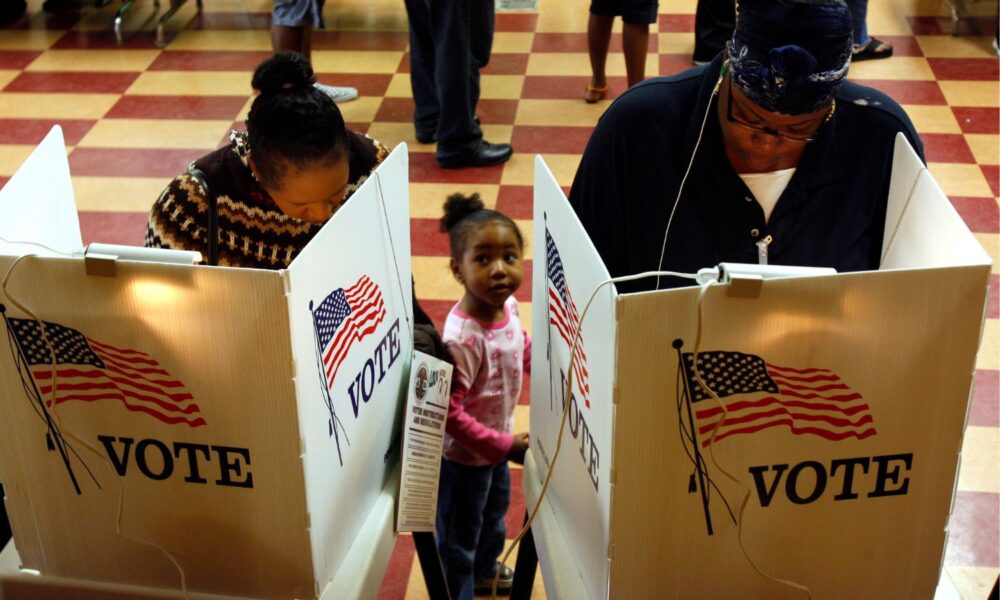Last week, a bipartisan group of Senators proposed a set of amendments to the Electoral Count Act with the intent of preventing the next attempt to subvert a presidential election in 2024. Do these revisions achieve the minimal protections needed to secure the integrity of future presidential elections?
While no reform can guarantee a free and fair election, the provisions in this bill do address many of the specific threats UCS and others have raised Most recently, on July 6, UCS released a report, “Achieving Multiracial, Multiparty Democracy.” Authored by leading political scientists, experts, and organizers, the report recommended securing election integrity as the number one priority over the summer.
Specifically, we urged Congress and other lawmakers to implement “impartial, evidence-based rules that specify how votes are to be counted and tallied, the conditions under which authority over election certification may transfer to state officials, and similar areas of discretion in the certification process. Further, federal laws that restrict the sort of frivolous lawsuits used to spread disinformation after the 2020 election, as well as laws to punish the spread of false election information, intimidation of voters and election administrators, and threats of political violence, also need to be in place if we hope to secure the 2024 election cycle from targeted subversion.”
The proposed bipartisan bill is not perfect. But it does include essential protections that should be put in place as soon as possible. Congress and President Biden should move swiftly to implement this legislation.
Here are the proposed bill’s major improvements to current election law:
Reducing the potential for subversion by state legislatures
The first section of the bill addresses how states appoint electors. It requires that electors be appointed “in pursuance of the laws…enacted prior to election day.” This is designed to prohibit state legislators from enacting ad hoc laws to select new electors after votes are counted. Further, the bill assigns the governor or “executive” of each state the responsibility for transmitting the electors to the US Archivist, and that that transmission “shall be treated as conclusive with respect to the determination of electors…”
Strengthening judicial review
The law would require challenges to the electors to go straight to the federal district court of jurisdiction for a given state. The determination of federal courts shall be conclusive, meaning that a rogue Congress could not ignore the decision.
Clarifying the role of the Vice President
Under the section “Powers of the President of the Senate” the bill defines the role of the Vice President as “ministerial in nature” and explicitly denies him or her the power to solely “determine, accept, reject, or otherwise adjudicate or resolve disputes over the proper list of electors…”
Raising the bar for Congressional objections
The bill significantly raises the bar for filing an objection to certification of electors, from a single member to one-fifth of the members of each chamber. While this would not have stopped the 138 House Republicans (32 percent) who objected to certifying the Arizona or Pennsylvania electors, there would not have been enough support in the Senate to attempt to reject electors in 2020.
Preventing state legislatures from trying to undermine certification
Crucially, the law also tries to prevent state legislatures from calling a “failed election,” a potential tactic for derailing Congressional certification. Under the new provisions, states that cannot finalize an election will not be allowed to have their electors count toward determining the majority of electors, one of several mechanisms that would favor selection of the “apparent successful candidate,” in the absence of legal challenges that might change election outcomes.
All in all, the bill includes significant reforms that go a long way toward ensuring the security of future elections. There are numerous shortcomings, including a lack of essential funding to strengthen the infrastructure of our elections at the local level, where the fight will begin. Nevertheless, many of these provisions are precisely the sort of structural restraints on political discretion that experts have been calling for all year. That’s why Congress and President Biden should now move swiftly to enact them.

